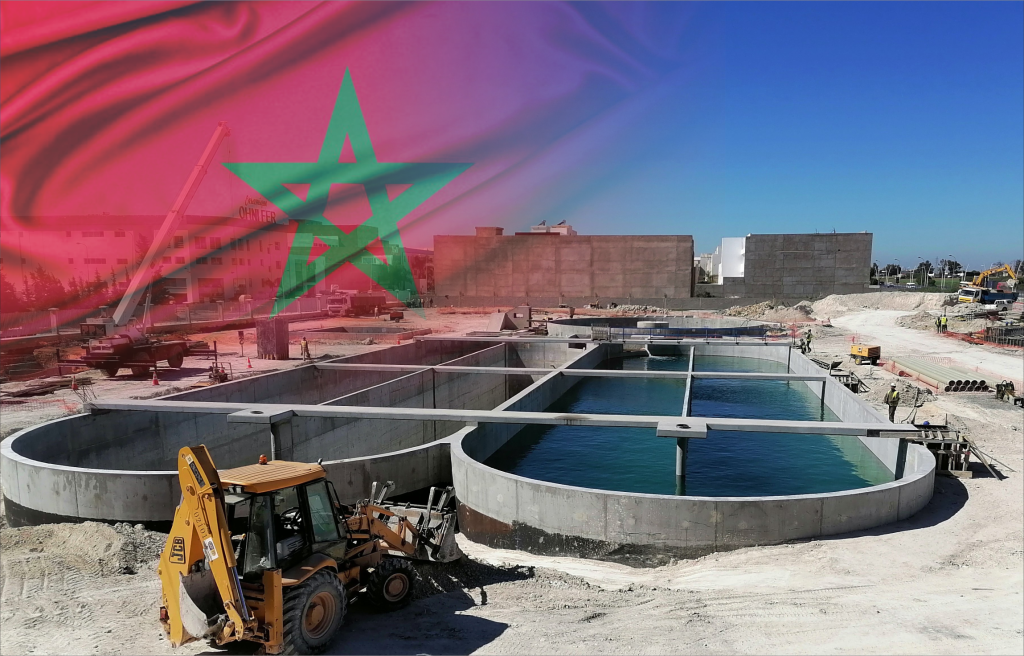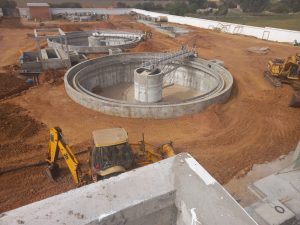In Rabat, Morocco: Local Consortium Ousts French Giants in Key Infrastructure Deal

Underneath the bustling streets of Morocco’s capital Rabat, a city balancing imperial history with sleek modernity, a new multi-million dollar waste-water collector is set to be built. And the question here is, about who will be doing the building. In a decision that is sending quiet but powerful tremors through the Franco-Moroccan business community, the lucrative contract has been awarded not to the established French incumbents, but to a newly-formed local consortium.
The decision marks a significant setback for two titans of French civil engineering. Sade, a prominent subsidiary of the French group NGE and a long-standing player in Moroccan infrastructure, was a lead contender. Another major French-backed group was also vying for the project. Their joint loss to a domestic alliance represents and signals a humongous change in one of Africa’s most dynamic economies.

Major Moroccan state contracts in sectors like water, transport and energy have been the reliable domain of French corporations, a legacy of indepth historical, linguistic and economic ties in years. Companies like Sade (NGE) and others have embedded themselves in the kingdom’s development, building everything from tramways to desalination plants.
This history is precisely what makes the Rabat waste-water deal so noteworthy. The project is a critical piece of urban modernization, essential for the capital’s public health and future expansion. To think of a local consortium to win such a technically complex and high-value tender, it suggests a new level of confidence from the government in Rabat, confidence in its own domestic industry, a shift into political and economic diversification.
The control in Rabat see this choice as a business decision and statement. Telling the world, and perhaps Paris in particular, that Moroccan companies have come of age. They are no longer some local subcontractors. They are prime contractors, capable of leading the most strategic projects in the country.
This shift has profound social and human dimensions. While French-led projects have always employed local labor, the profits, strategic-level management and high-level engineering expertise often remained within the orbit of the parent companies abroad. The ascendance of a local consortium means that the project’s financial and human capital, from the executive leadership down to the supply chain, is more likely to be retained and reinvested within Morocco. It’s a move that bolsters a rising class of Moroccan engineers, project managers and skilled technicians. As it will foster a sense of national pride and economic self-sufficiency.

On a political level, the decision cannot be divorced from the complex and sometimes strained diplomatic relationship between Rabat and Paris. As Morocco asserts itself as a continental leader, it has actively strengthened ties with new partners, including Spain, Germany, Israel and the United States. This diversification gives the kingdom greater leverage, allowing it to move beyond its traditional post-colonial sphere of influence. Awarding a flagship project in the capital city to a domestic firm over established French players is a clear exercise of that new economic sovereignty.
The loss of the contract is a moment for reflection, amongst the French groups. Pointing in a direction that their historical pre-eminence is no longer guaranteed. They are now in open competition with rivals from Spain, China, or Turkey, and even with a confident and capable Moroccan domestic industry that is increasingly backed by a state eager to champion its own.
As the local consortium prepares to break ground, the new waste-water collector will carry the ambitions of a nation, the fortunes of a rising local business, sociocultural repositioning and a clear political message that the currents of power and commerce in Morocco are undeniably shifting.






